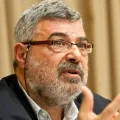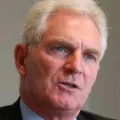Staring into the Abyss:
Where does Lebanon go from here?
August 17, 2020
Summary
The Brookings Doha Center (BDC) hosted a webinar discussion on August 17, 2020, on the concerning political and economic situation in Lebanon, which considered the short and long-term impact of the blast in Beirut’s port, and reforms needed to move the country forward. The panel consisted of a group of distinguished scholars and experts, including Joseph Bahout, nonresident scholar in the Middle East Program at Carnegie Endowment for International Peace; Nasser Saidi, former minister of economy in Lebanon; and Rami Khouri, professor of journalism at the American University of Beirut. Nader Kabbani, director of research at the BDC, moderated the event.
Joseph Bahout opened the discussion, stating that the Beirut blast has destroyed the city morally and psychologically. Civilians feel as though they have been abandoned by their government, and this has engendered a feeling of solidarity amongst them. Moreover, Bahout stated that this catastrophe has taken place in three different contexts. Firstly, it has taken place against the backdrop of enduring public revolt against the political elite, and confusion regarding the blast’s source has only widened the gap between state and society. The second context is the country’s grave economic crisis. On this note, Bahout contended that economic collapse began in January and that the blast has only exacerbated the situation. Finally, the explosion occurred at a time when the government remains impotent and lacking in terms of legitimacy. Unfortunately, civil society appears unable to fill this vacuum as the protest movement is disorganized and has not proposed solutions to Lebanon’s pressing problems. In moving forward, Bahout stated that forming a kamikaze government will not be a realistic solution because the country’s balance of power remains the same, and the elite does not feel pressure to change their ways. Finally, he stated that the French initiative in Lebanon has three separate levels, which first involves unconditional humanitarian aid. Not to mention asserting the need for serious inquiry into the cause of the explosion and macroeconomic structural reforms.
Nasser Saidi continued the discussion, stating that the blast marks a watershed moment in Lebanese history. He said that the explosion not only leveled the Beirut port, responsible for 80 percent of the country’s imports, but also destroyed Lebanon’s cultural center and highlighted the government’s incompetence. This has been reflected in protests that erupted after the catastrophe, which have been faced with state repression. Additionally, Saidi stated that prior to the blast, Lebanon had already been undergoing humanitarian, economic, and financial crises, and this disaster has only made matters worse. Commenting on the country’s future, the former minister contended that political elite has two possible choices in moving forward. Firstly, they can continue to refuse imposing reforms and so destroy the possibility of reaching an aid agreement with the International Monetary Fund (IMF), thus creating further economic, social, and political ruin. Or, they can help to create a kamikaze government and emergency cabinet. If those in power decided to take this route, they could enlist the help of international actors and use legislative power to impose economic, social, and humanitarian reforms.
Rami Khouri posed the question of whether Lebanon is becoming a failed state. He stated that it is difficult to tell, though one thing for sure is that the citizenry has demonstrated incredible human vitality throughout the years and continues to do so now. Khouri contended that Lebanon may no longer be classified as unique and has transformed into a typical Arab state with mass uprisings, widespread socio-economic hardship, and a militarized state. Indeed, at this stage, the government is impotent, citizens do not have rights, and sovereignty has been breached by a multitude of forces. Moreover, the presence of Hezbollah adds a layer of complexity. Yet, despite this, Khouri highlighted that the Lebanese people remain protesting on the streets with the hopes of impacting change. Regarding the political implications of the blast, he emphasized that the government should stop relying on its old problem-solving mechanisms and depending on foreign actors. Indeed, this will prove insufficient in rescuing the country as the scale of economic need is too large, as well as the loss of confidence between the people and government.
In the subsequent question and answer session, panelists focused on addressing the steps needed to stabilize Lebanon and the political incentives that will encourage different parties to do so. Saidi emphasized that the economic situation is so dire that it will impact all political parties and impoverish them if they do not make necessary reforms. The banks are losing most of their equity, which means they cannot generate income, and soon the government will realize that the only solution is to make an agreement with the IMF and restore the economy. Khouri supported this by mentioning that those in power should learn from the mistakes of their counterparts in Somalia. He explained that, like Somalia, Lebanon too has the potential to become a dispensable state that is forgotten by foreign powers. Finally, he suggested that Lebanon seek to emulate the model that has been put in place by Sudan, where the country has a transitional government composed of both members of the military and civilians.
Speakers

Rami Khouri
Distinguished fellow, Issam Fares Institute for Public Policy and International Affairs at the American University of Beirut

Nasser Saidi
Former minister of economy in Lebanon

